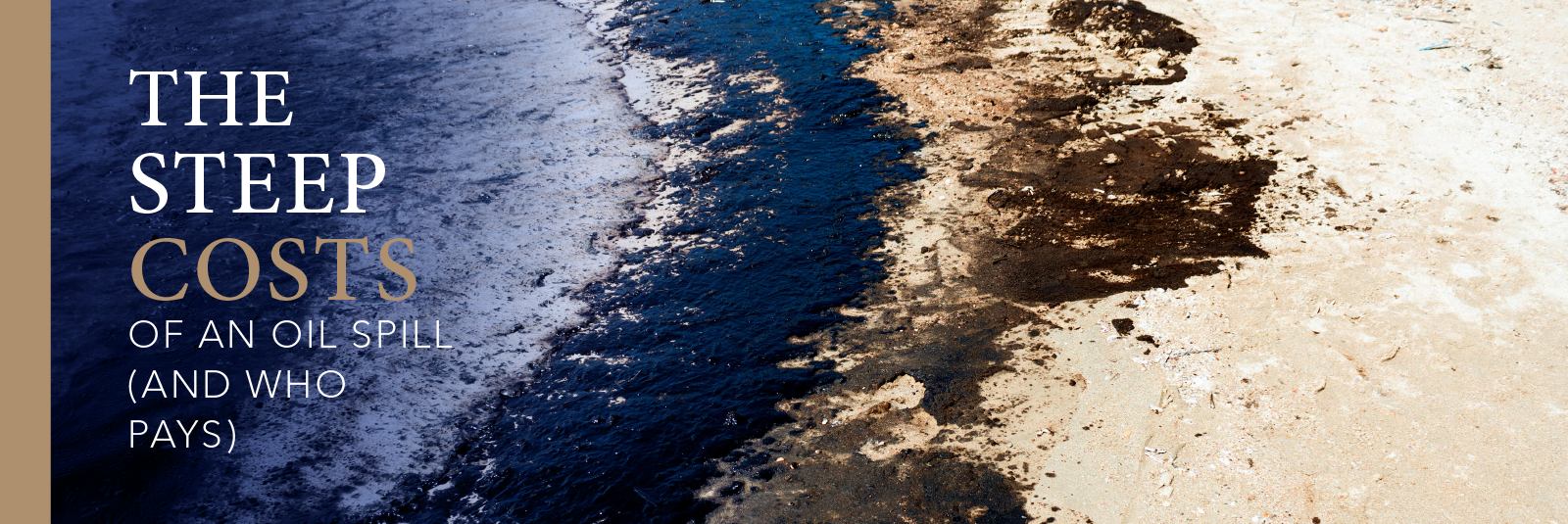Over $61 billion. That’s the estimate of how much the Deepwater Horizon oil spill cost BP when all was said and done. Granted, this number is shocking because it was one of the largest spills in history, and most spills are smaller with no impact and inconsequential costs. But those operating in the marine shipping industry shouldn’t be lulled into complacency — the risk of a catastrophic oil spill is always something to guard your business against.
Clean-up and litigation are what most people think of when it comes to the financial repercussions of an oil spill. And there’s also the increased spend on marketing and PR efforts to counteract the inevitable negative public perception if a spill is big enough to gain media coverage. While those are all major components of oil spill costs, there are many more factors at play to be aware of so you can proactively protect yourself from risk.
What Do the Cost of Oil Spills Include?
The harm caused by oil spills can be categorized in many different ways, but “A Taxonomy of Oil Spill Costs” outlines the standard items that are factored into the final cost. These include, but are not limited to:
- Cleanup
- Containment
- Natural resource damage assessment and restoration
- Property Damage
- Litigation
- Mitigation
- Fines and penalties
- Public Relations
As would be expected, there are very clear policies and rules around who pays these oil spill costs.
Who Pays For Oil Spills?
In theory, the cost of an oil spill will not be paid by the public and will only be shouldered by those culpable. The Oil Pollution Act of 1990 essentially states that the party responsible for the oil spill must pay for cleanup operations and restoring natural resources — this includes all of the items outlined in the previous section. While liability can take insurance companies and lawyers time to determine, the spill cleanup must happen immediately.
The U.S. Coast Guard’s Oil Spill Liability Trust Fund provides emergency funding for those involved in oil spill response and cleanup. The fund also covers the costs for natural resource damage assessment and restoration. When a party is deemed liable for the oil spill, they will be required to reimburse expenses paid by the fund. (If the origin of the oil spill is unknown, or the liable party cannot pay for the spill’s full costs, the fund will cover the costs.)
Final Takeaway
There is more to the cost of an oil spill than simply removing the oil. If you are found liable for an oil spill, you are responsible for paying your statutory limit for the costs of clean-up and restoration, and those costs can include items you didn’t even realize would be factored in. To make sure you have all of your bases covered, choose a trustworthy insurance partner who knows the ins and outs of a spill, and can help navigate the process in your time of need. For more information, contact Safe Harbor Pollution Insurance.





